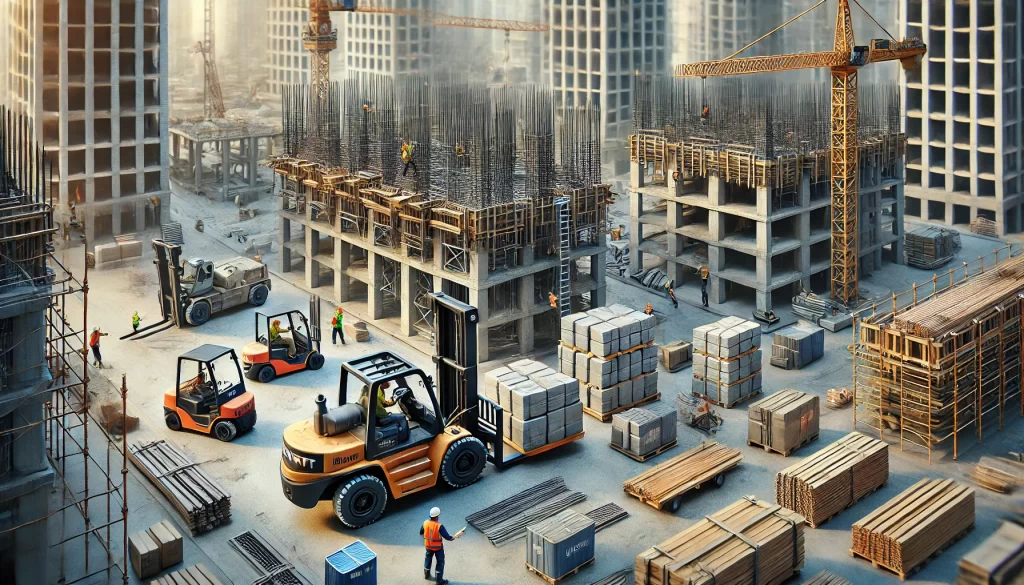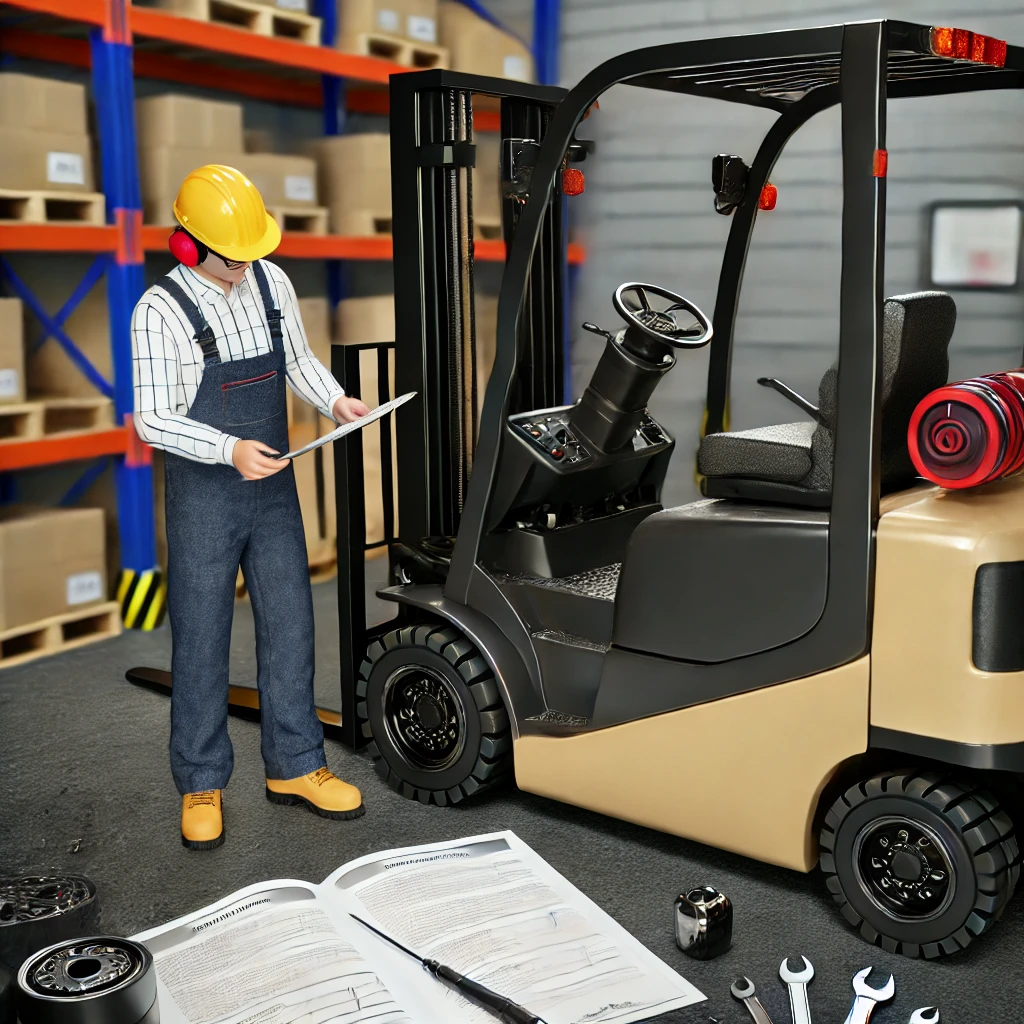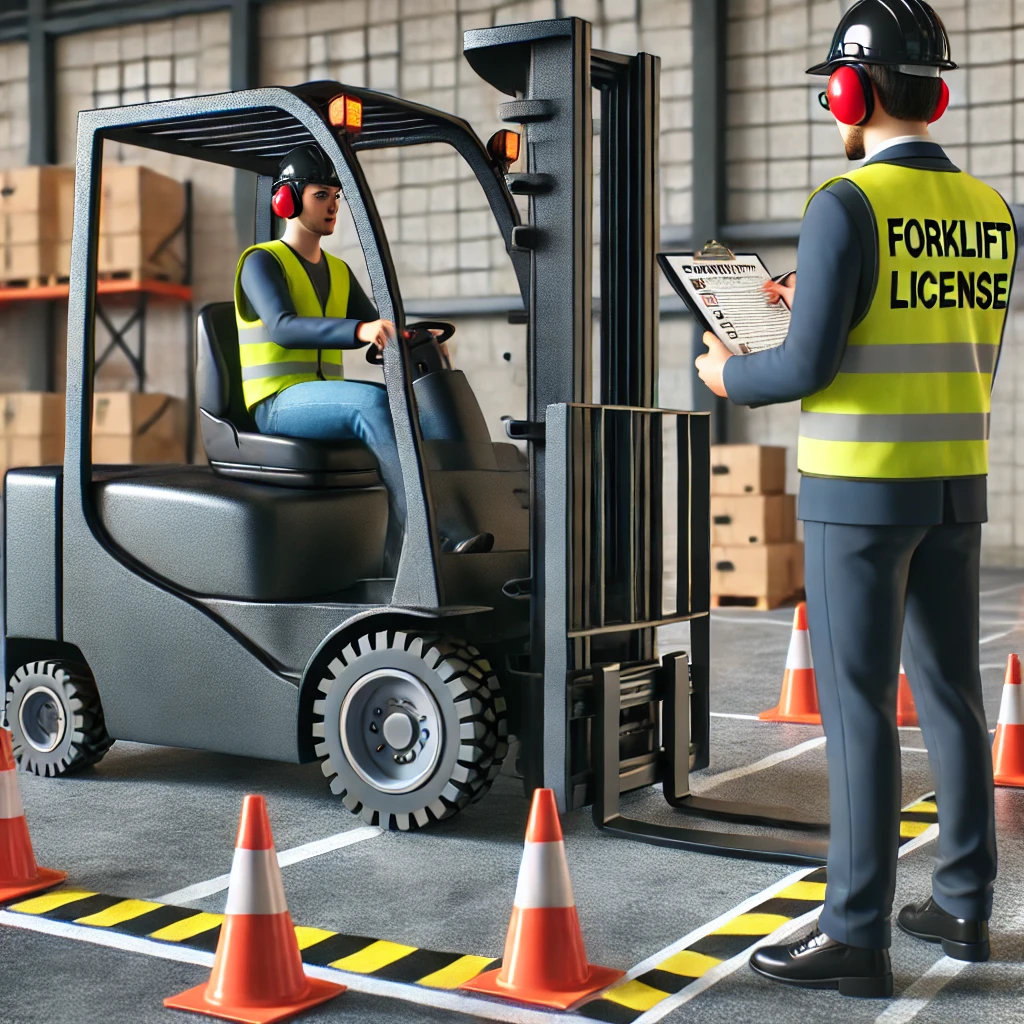When you think of construction sites, you might picture cranes, bulldozers, and excavators. But one piece of equipment that often flies under the radar – yet plays a crucial role in construction – is the humble forklift. Whether it’s moving materials, lifting heavy loads, or navigating through tight spaces, forklifts are an indispensable part of construction operations.
Let’s take a closer look at the importance of forklifts in the construction industry and how they contribute to site safety and efficiency.
Forklifts: The Unsung Heroes of Construction
Forklifts might not have the same massive presence as cranes or excavators, but don’t let their size fool you. They are powerful machines that are vital for getting things done efficiently on construction sites.
- Material Handling Made Easy
Construction projects involve an enormous amount of materials – everything from bricks and steel beams to timber and concrete blocks. Forklifts make moving these materials quick and efficient. Instead of having workers manually shift heavy loads, forklifts can safely transport them across the site, saving time and energy.
This not only speeds up construction processes but also reduces the physical strain on workers, minimising the risk of injuries related to lifting and moving heavy materials.
- Versatility on the Job Site
Forklifts are incredibly versatile and can handle various tasks on a construction site. Need to unload supplies from a delivery truck? A forklift can do that. Have to lift pallets of materials to a higher level of the building? A forklift has you covered. Whether it’s ground-level work or reaching those high, tricky spots, forklifts are adaptable machines that keep things moving smoothly.
- Boosting Site Efficiency
Time is money in construction, and forklifts help boost site efficiency by streamlining material handling. Forklifts can quickly move supplies from one part of the site to another, ensuring that materials are where they need to be when they’re needed. This means fewer delays, fewer bottlenecks, and a faster construction process overall.
By allowing skilled forklift operators to handle material transport, other workers can focus on their specialised tasks, whether that’s framing, plumbing, or electrical work. In the end, it’s all about maximising productivity and getting the job done faster without compromising safety.
Enhancing Safety on the Construction Site
Forklifts aren’t just about making things faster – they’re also about making things safer. Construction sites are inherently hazardous, with heavy materials, high platforms, and lots of moving parts. Forklifts help reduce some of the risks associated with manual material handling and heavy lifting.
- Reducing Worker Injuries
One of the main ways forklifts contribute to safety is by reducing the need for workers to manually lift and carry heavy loads. On a construction site, this can make a huge difference. By letting forklifts do the heavy lifting, you’re significantly cutting down the chances of workers injuring themselves due to overexertion, strains, or falls.
- Stability and Control
Forklifts are designed to handle heavy loads with stability, which reduces the risk of materials toppling over during transport. When materials are transported manually or with makeshift equipment, there’s a much higher chance of accidents happening – not just to the workers handling the materials, but also to others on-site. Forklifts, with their precise controls and stability, make it much easier to move materials safely.
- Safe Movement in Tight Spaces
Construction sites can be crowded and chaotic, with lots of equipment and workers moving around. Forklifts are compact and nimble enough to navigate tight spaces, ensuring that materials can be delivered exactly where they’re needed without causing obstructions or hazards.
4.Forklifts and Site Efficiency: A Winning Combination
Every construction project runs on tight deadlines, and meeting those deadlines requires careful planning and efficient execution. Forklifts are key players in making sure construction stays on track. Whether it’s moving materials quickly, reducing delays in delivery, or helping load supplies onto trucks, forklifts are vital for keeping the project on schedule.
Here’s how forklifts contribute to site efficiency:
- Rapid Material Handling: Forklifts move materials faster than manual labour ever could. By speeding up material transport, construction crews have quicker access to the tools and supplies they need, which keeps things running smoothly.
- Minimising Downtime: On busy construction sites, every minute counts. Forklifts help minimise downtime by quickly clearing obstacles, delivering materials on time, and keeping the site organised. This means fewer delays and a more efficient build.
- Precision Lifting: If it’s a forklift moving pallets, then they are designed for precise handling. This means materials are placed exactly where they need to go, reducing the chances of mishaps or rework.
The Future of Forklifts in Construction
With advancements in technology, forklifts in the construction industry are only going to get better. We’re already seeing electric forklifts making waves in warehouses, and as demand grows for environmentally friendly solutions, it’s likely that electric and hybrid forklifts will become more common on construction sites too.
Additionally, with automation and smart technology making their way into construction, it’s not far-fetched to imagine forklifts equipped with advanced navigation systems that could further boost site safety and efficiency.
Conclusion
Forklifts are an essential piece of the construction puzzle. From material handling to boosting productivity and enhancing safety, they’re vital for ensuring that construction projects run smoothly and on schedule. With the ability to tackle heavy loads, navigate tight spaces, and deliver materials with precision, forklifts are the unsung heroes that keep construction sites humming.
So, the next time you see a forklift in action on a building site, remember – it’s doing more than just moving materials. It’s helping keep the project safe, efficient, and on track to success.







